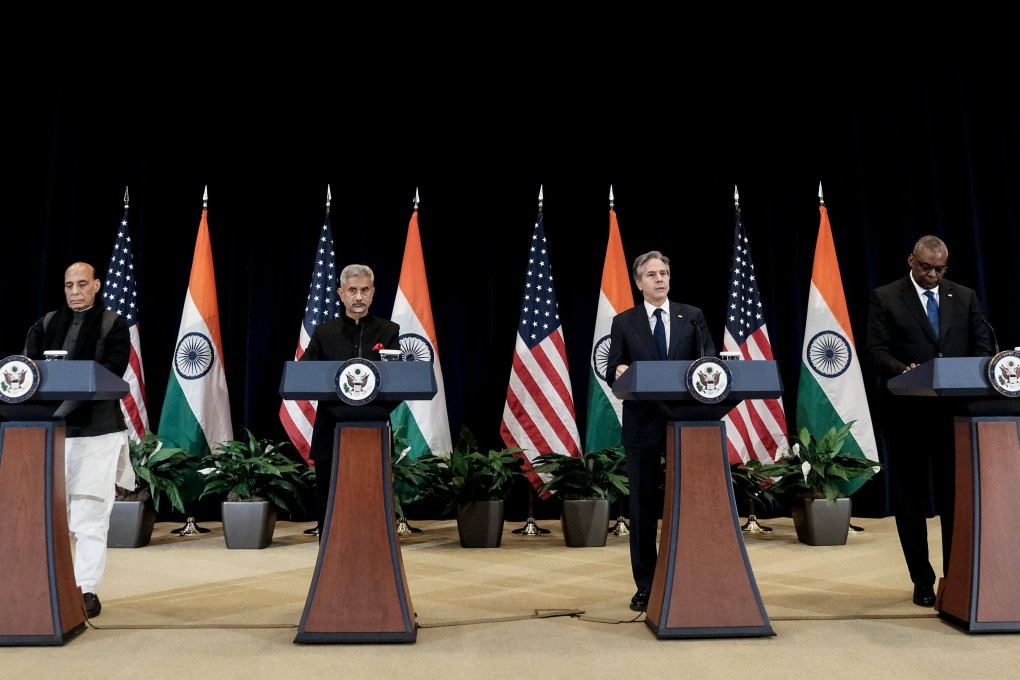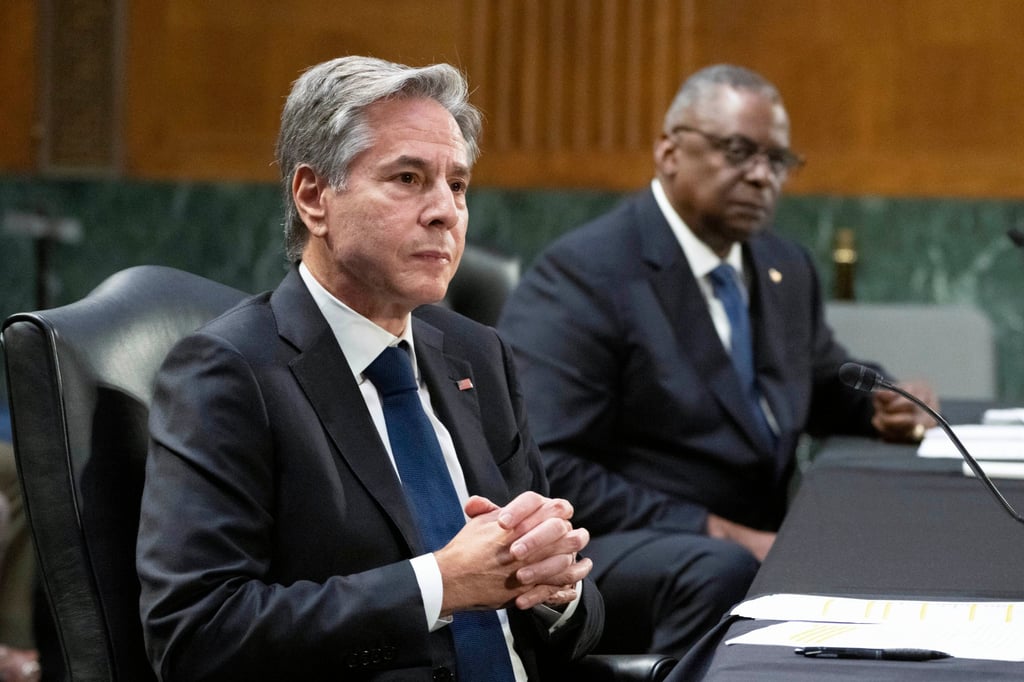India to seek ‘reassurance’ on US Indo-Pacific focus, defence ties in ‘2+2’ talks amid China outreach
- India will be concerned whether growing US-China ties will affect ‘bandwidth for a more robust response’ to Beijing, analysts say
- The 2+2 talks will also allow India to clarify the US approach to China and strengthen bilateral defence ties

The United States will push for stronger military and diplomatic ties with India in high-level talks on Friday, in what analysts say is a chance for New Delhi to seek “reassurance” that Washington’s Indo-Pacific focus remains intact despite growing engagement with China.
Amid US involvement in the Gaza and Ukraine conflicts, US Secretary of State Antony Blinken and Secretary of Defence Lloyd Austin will meet their Indian counterparts Subrahmanyam Jaishankar and Rajnath Singh for the fifth annual “2+2” ministerial dialogue, which was established in 2018 to strengthen US-India ties.
“India would be seeking reassurance that the agenda for the US still remains the same,” said Harsh Pant, a professor of international relations at King’s College, London.
“Bilaterally, the agenda will remain the same, but regionally – from balancing two wars and the [growing] engagement with Beijing – the question is whether the US has bandwidth for a more robust response to China,” Pant added.

Analysts say Delhi is likely to be closely following the growing engagement between the US and China, with Blinken, US Treasury Secretary Janet Yellen and Commerce Secretary Gina Raimondo visiting Beijing in the last few months.